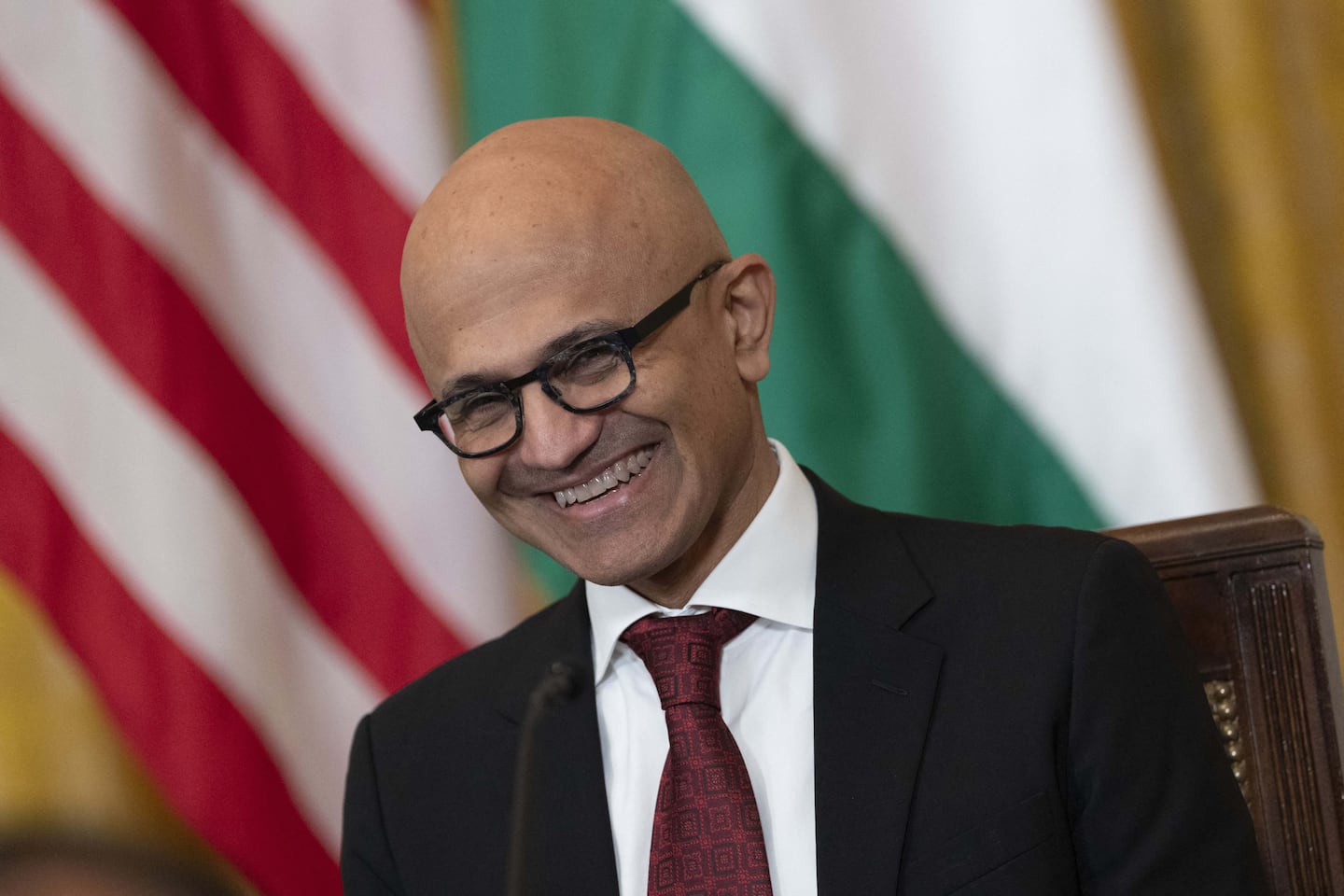- MicroStrategy's 605% rally is spurring demand for more corporate buying of Bitcoin.
- Washington group is calling on Amazon shareholders to press board for action.
- Tech companies are sitting on mountains of cash.
When Ethan Peck launched a campaign to get Microsoft to start loading up on Bitcoin, he was under no illusions his effort would fail.
He just didn’t expect it to fail so miserably.
On December 10, a shareholder resolution that would have directed the software giant’s board of directors to consider buying Bitcoin garnered a measly 0.55% of the stockholder vote.
“I worked hours and hours trying to get this vote higher,” Peck told DL News. “And they told me to take a hike.”
Yet Peck, a one-time music producer turned Bitcoin activist, isn’t giving up.
Powerful ally
He’s begun a new campaign to get Amazon and Meta shareholders to direct their respective boards to consider putting Bitcoin on their balance sheets.
And he plans on targeting other Big Tech players as the 2025 proxy season kicks off this month.
”Within a few weeks, the last couple will be public,” said Peck, the deputy director of the Free Enterprise Project, or FEP, a Washington-based advocacy group.
MicroStrategy Executive Chairman Michael Saylor’s love of Bitcoin is driving a push for more corporate buying of the cryptocurrency. The business software maker has stockpiled 450,000 coins worth $42 billion.
The strategy has paid off: MicroStrategy’s shares skyrocketed 605% in the 12 months ending January 14 as Bitcoin hit all-time highs. Other companies should now follow his lead, advocates say.
“The core message is simply: you’re leaving money on the table,” Stefan Padfield, the FEP’s executive director, told DL News.
“It’s also clear that Bitcoin is very prominent in the freedom movement, certainly among libertarians. There’s those benefits as well.”
Longest of long shots
Pursuing so-called proxy campaigns are typically the longest of long shots. Investors in corporations, especially giants such as Microsoft or Amazon, rarely vote to direct company leaders to change how they manage their businesses.
Yet shareholder resolution efforts often galvanise support for addressing issues ranging from climate change to executive compensation to workplace diversity.
Now, thanks largely to Peck, buying Bitcoin has been thrust into the mix.
His campaign mixes Bitcoin’s investment story with conservative politics.
Founded in 2007, the FEP is opposed to the “woke takeover of American corporate life.”
It operates under the auspices of the National Center for Public Policy Research, a 42-year-old conservative think tank devoted to fostering free-market policies.
Project 2025
The institution is one of dozens of groups that serve on the advisory board for the Heritage Foundation’s Project 2025. This is the initiative that produced a 900-page blueprint for Donald Trump’s second presidential term.
Criticised as an assault on US democracy, Project 2025 calls for consolidating power in the White House by placing the Department of Justice and other independent arms of the government under the president’s direct control.
The National Center declined to comment on its links to Project 2025.
‘When I introduced this proposal, they had never seen anything like this before.’
— Ethan Peck, Free Enterprise Project
Over the years, the organisation has sponsored more than 150 shareholder resolutions to try and spur changes at big companies. It has challenged sustainability practices at Apple, diversity policies at Boeing, and “radical gender ideology” at Nike. The most votes the organisation has garnered in those votes is 5%.
Peck is hopeful his Bitcoin proposals will find greater support.

They come at a time when more public companies — not just MicroStrategy — are turning to cryptocurrencies to turbo-charge corporate treasuries.
There are now 77 publicly listed companies that hold the cryptocurrency on their balance sheet, according to data from Bitcoin Treasuries. Just 30 companies were doing that in 2021.
Radical step
While most are crypto firms such as Marathon Digital and Coinbase, non-industry players appear to be taking a serious look at adding Bitcoin to their coffers.
Remixpoint, a Japanese energy management company, holds nearly 300 Bitcoin — worth some $29 million. And Nano Labs, a Chinese chipmaker, said it invested in 360 Bitcoin in December.
Even so, getting widely held corporations such as Amazon and Microsoft to take the radical step of committing billions of dollars to such a volatile asset isn’t going to be easy.
In many cases, sponsors consider a vote exceeding 5% a victory, even though, technically, it’s a resounding defeat.
Engaging CEOs
This is because proposals that fail to garner 5% of shareholder votes cannot be resubmitted for several years, according to rules set by the US Securities and Exchange Commission.
Shareholders must also wait at least three years after buying company shares before making any proposals. This is why the think tank couldn’t submit a resolution to Meta.
Peck said he did so using his own shares in the social media company.
At this stage in their campaign, Peck and Padfield are concentrating on adding their proposals to company proxy statements that shareholders vote on.
This is no mean feat — proposals must be carefully worded to pass muster with the SEC. And company boards typically oppose their addition to proxy statements.
Peck said the FEP also engages directly with company leaders ahead of shareholder votes to try and win concessions in exchange for dropping the resolutions.
He offered Microsoft two conditions to withdraw its proposal: Convert 1% of its $78.4 billion in cash holdings to Bitcoin, or let Saylor pitch CEO Satya Nadella on buying Bitcoin.
Saylor agreed to talk to Nadella on behalf of Peck’s campaign. Yet Peck said he doesn’t know if the Bitcoin champion will help again in the future. Microsoft declined to comment.
Talking to Wall Street
Microsoft brass rejected both of Peck’s proposals. So Peck engaged Microsoft’s largest stockholders — asset management giants Vanguard, BlackRock, State Street, Fidelity, and Geode Capital — and asked for their support.
He didn’t get it. BlackRock told DL News it doesn’t comment on individual proposals. State Street declined to comment. Vanguard, Fidelity, and Geode Capital did not respond to requests for comment.

As for Amazon, Peck’s shareholder proposal urges the company’s board to examine whether adding Bitcoin to its corporate treasuries — even just 5% — will be in the best long-term interests of its shareholders.
So far, the online retail behemoth hasn’t challenged the proposal. And Peck is engaging with the same asset managers to curry support.
“When I first introduced this proposal to them, they had never seen anything like this before,” he said.
If Peck can show that Amazon shareholders will be more receptive to the idea than Microsoft’s, that will be progress.
“The positive is they now have prolonged exposure to this issue, and we have more time to make our case,” he said. “Over, and over, and over again.”
Liam Kelly is a Berlin-based reporter for DL News. Got a tip? Email him at liam@dlnews.com.
